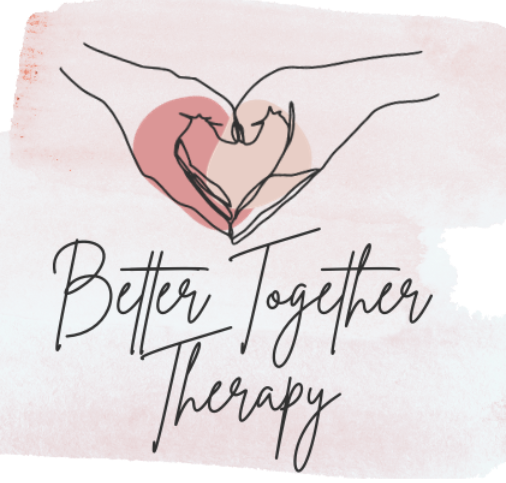Transitioning to adulthood is a multifaceted journey marked by several key stages. Each stage represents a significant shift in your life, requiring you to adapt and grow. These transitions help shape who you are, how you interact with the world, and how you build your future. So after learning what are the challenges young people may face during the transition to adulthood, let’s explore the seven major transitions to adulthood: identity, autonomy, relationships, education, work, economic stability, and residence. Understanding these transitions with the help of life transition therapy, can provide you with valuable insights into your personal development and help you navigate the complexities of adulthood with confidence and resilience.
Identity Transition
The identity transition involves exploring and developing your sense of self. This stage is crucial for understanding your personal values, beliefs, and aspirations. During this time, you work on establishing a clear identity separate from your family and peers. It’s about figuring out who you are, what you stand for, and what you want to achieve in life. This self-discovery process can be both challenging and rewarding, as it lays the foundation for your future decisions and actions.
Autonomy Transition
The autonomy transition is about gaining independence and taking responsibility for your actions and decisions. This includes moving away from dependence on parents or guardians and developing the skills and confidence to navigate life independently. It’s about making your own choices, managing your own time, and learning from your mistakes. This transition is vital for building self-reliance and preparing you for the responsibilities of adult life.
Relationship Transition
The relationship transition involves forming meaningful connections with others outside of the family unit. This includes building friendships, romantic relationships, and professional networks. Learning to navigate the complexities of interpersonal relationships is key to this transition. It’s about understanding and practicing effective communication, empathy, and conflict resolution. Building a support system of trusted individuals can provide emotional stability and guidance as you move through various stages of life.
Educational Transition
The educational transition involves completing formal education and transitioning into the workforce or higher education. This includes acquiring the necessary skills and qualifications for career advancement and lifelong learning. It’s a time of significant growth as you learn to apply knowledge in real-world settings, develop professional competencies, and set the stage for your career. This transition is essential for establishing your professional identity and setting the groundwork for future success.
Work Transition
The work transition marks your entry into the workforce and the pursuit of a career path. This includes securing employment, establishing a professional identity, and navigating the challenges and opportunities of the working world. This stage is about finding your place in the professional landscape, understanding workplace dynamics, and striving for career growth and satisfaction. It’s a period of learning, adaptation, and progress as you build your career and work towards your professional goals.
Economic Transition
The economic transition involves achieving financial independence and stability. This includes managing your finances responsibly, planning for the future, and making informed financial decisions that support long-term goals. It’s about budgeting, saving, investing, and understanding the financial systems that affect your life. Achieving economic stability is crucial for your overall well-being and provides a foundation for pursuing your personal and professional aspirations.
Residential Transition
The residential transition involves establishing a place of residence and creating a home environment that meets your needs and preferences. This includes finding suitable housing, managing household responsibilities, and creating a sense of belonging in a community. Whether it’s renting your first apartment, buying a home, or relocating for work, this transition is about creating a space where you feel safe, comfortable, and at home.
What are the Stages of Adulthood?
You may wonder, what does transition mean in adulthood? Or how do you transition to adulthood? Adulthood can be divided into several stages, each marked by different transitions and milestones. Early adulthood typically spans from the late teens to the mid-thirties and involves establishing independence, pursuing education and career opportunities, and forming significant relationships. Middle adulthood, from the mid-thirties to mid-fifties, focuses on career advancement, family responsibilities, and personal growth. Later adulthood, from the mid-fifties onwards, often involves preparing for retirement, reflecting on life achievements, and adjusting to changes in health and social roles.

What is the Transition from Early Adulthood to Middle Adulthood?
The transition from early adulthood to middle adulthood involves shifting priorities and responsibilities. As you move from your twenties into your thirties and forties, you may find yourself focusing more on career stability, long-term relationships, and family life. This period often includes significant life events such as marriage, parenthood, and homeownership. It’s a time of building and consolidating the foundations laid in early adulthood, with an increased emphasis on stability and long-term planning.
What are the Life Transitions in Middle Adulthood?
Life transitions in middle adulthood often include career changes or advancements, raising children, and caring for aging parents. This stage can also involve personal reassessment and lifestyle changes, such as pursuing new hobbies, focusing on health and wellness, or considering new career paths. Middle adulthood is a period of significant personal and professional development, as well as adaptation to evolving family dynamics and responsibilities.
What are the Four Developmental Transitions for Adults?
The four developmental transitions for adults are typically identified as:
- Forming a stable identity: Establishing a clear sense of who you are and what you stand for.
- Achieving independence: Gaining financial, emotional, and practical self-sufficiency.
- Building relationships: Developing deep and meaningful connections with others.
- Finding purpose: Engaging in work and activities that provide a sense of fulfillment and contribution to society.
These transitions are ongoing processes that continue to evolve throughout your life, shaping your experiences and personal growth.
Transitioning to adulthood involves navigating a series of significant changes that shape your identity, independence, relationships, education, career, economic stability, and residence. Each of these transitions contributes to your development as a well-rounded, self-sufficient adult. By understanding and embracing these transitions with the help of a life transition therapist, you can approach adulthood with confidence, resilience, and a clear sense of purpose. Remember, each step is a valuable part of your journey, leading you toward a fulfilling and successful adult life. Reach out to Better Together Therapy in Austin, TX to navigate your transitions.
Thrive Through Your Transition with Life Transitions Counseling in Austin, TX
Navigating the path to adulthood can be challenging, but you don’t have to do it alone. Embrace your journey of personal growth with the support you deserve. At Better Together Therapy, I offer specialized life transitions counseling to help you turn challenges into opportunities, fostering resilience and strength. Take the first step towards a healthier, more fulfilling future by following these three simple steps:
- Schedule a free 15-minute consultation to see if Life Transitions Counseling is right for you.
- Begin meeting with skilled Life Transition Therapist Samantha Serbin in Austin, TX.
- Overcome your challenges and thrive as you grow from your transitions.
Other Services Offered at Better Together Therapy in Austin, TX
At Better Together Therapy, I’m dedicated to supporting you through every stage of your personal journey. In addition to life transition therapy, we offer a range of services to help you achieve mental and emotional well-being. This includes Child and Adolescent Therapy, Anxiety Therapy, Depression Counseling, and Therapy for Family Dynamics.


